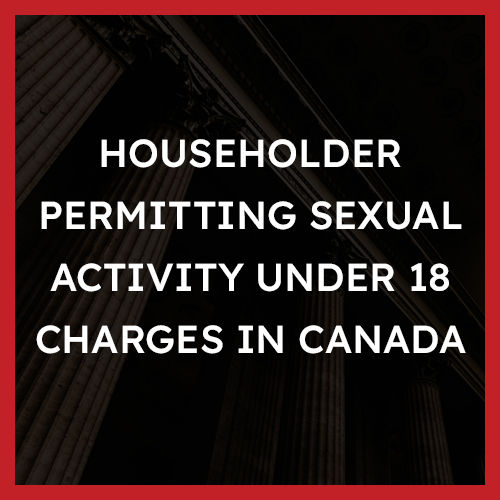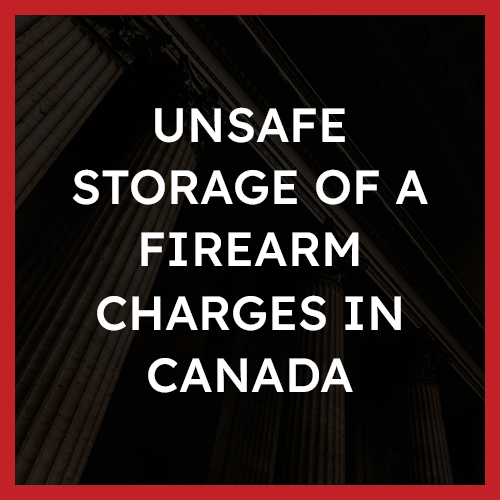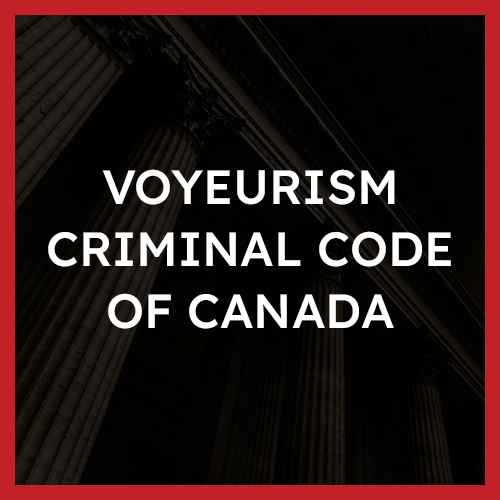Householder Permitting Sexual Activity Under 18 Laws in Canada Explained
What is a householder permitting sexual activity under 18 charge?

A householder permitting sexual activity under 18 charge occurs where an individual, who is an owner or occupier of the requisite premises or assists another in owning or managing the premises, permits another, below 18 years of age, to engage in sexual activity prohibited by the Criminal Code while on those premises.
Householder permitting sexual activity under 18 is an indictable offence. This means that the punishment is higher and the charge is more serious, as the crime itself is more serious than those falling under summary or hybrid offences. The accused is allowed a defence election of court under s. 536(2) of the Criminal Code.
An Act respecting the Criminal Law, in section 4.1, notes that even if Canadian citizens or permanent residents are outside of the country at the time of the offence, the crime is still punishable, just as it is to those inside Canada.
Examples
Some examples of a householder permitting sexual activity charge may include the following:
- The accused allowed an individual under 18 to perform prohibited sexual activities in their house;
- The accused knew the co-manager of a premise allowed individuals under 18 to perform prohibited sexual activities on the premises, and did nothing about it;
- The accused performed sexual activities with an individual under 18 in the accused’s house; and
- The accused made an individual under 18 resort to performing prohibited sexual activities in the accused’s house.
Defences
The defences available to a householder permitting sexual activity under 18 charge are entirely dependent on the facts of your case.
However, some defences to an escape from lawful custody charge may include:
- The accused was wrongly identified as the householder permitting sexual activity under 18; and
- The accused did not know that another was engaging in prohibited sexual activity in their house;
- The accused could have reasonably believed that the individual under 18 was over 18 years of age.
Punishment
A householder permitting sexual activity under 18 charge is a straight indictable offence, which entails a maximum punishment as follows:
- Imprisonment for a term of up to 14 years.
Punishments for householder permitting sexual activity under 18 charges range from 1 year of imprisonment to 14 years of imprisonment. The accused, if found guilty, will therefore have a jail term of at least one year, regardless of the circumstances of the case. If an accused is charged with this offence, they will not be allowed discharges, stand-alone fines, suspended sentences, or conditional sentences. The accused will be allowed a preliminary inquiry, as stated in s. 535 of the Criminal Code.
A householder permitting sexual activity under 18 charge can entail severe consequences for current and future employment opportunities and immigration status.
Overview of the Offence
According to s. 171 of the Criminal Code:
Householder permitting prohibited sexual activity
171 Every owner, occupier or manager of premises, or any other person who has control of premises or assists in the management or control of premises, who knowingly permits a person under the age of 18 years to resort to or to be on the premises to engage in any sexual activity prohibited by this Act is guilty of an indictable offence and liable to imprisonment for a term of not more than 14 years and to a minimum punishment of imprisonment for a term of one year.
The Guilty Act (Actus Reus)
The actus reus for a householder permitting sexual activity under 18 charge under s. 171 is established by proof, beyond a reasonable doubt, of the following:
Householder permitting sexual activity under 18
- The accused was an owner, occupier or manager of a premise; and
- The accused allowed an individual under 18 to engage in prohibited sexual activity within those premises.
OR
- The accused had control over a premise; and
- The accused allowed an individual under 18 to engage in prohibited sexual activity within those premises.
The actus reus refers to the act or omission itself that constitutes the physical elements of a crime. Thus, the physical aspect of a householder permitting sexual activity under 18 would constitute the actus reus of the offence. One example would be that the accused allowed an individual under 18 to use their house for prohibited sexual activity.
The Guilty Mind (Mens Rea)
The mens rea for a householder permitting sexual activity under 18 under s. 171 includes proving, beyond a reasonable doubt, that:
- The accused was the owner, occupier or manager of a premise or had control over the premise; and
- The accused knew that an individual under 18 was engaging in prohibited sexual activity on those premises.
OR
- The accused was the owner, occupier or manager of a premise or had control over the premises; and
- The accused knowingly allowed an individual under 18 to engage in prohibited sexual activity within those premises.
Mens rea is defined as the knowledge or intention of committing the crime. Thus, knowing that one, as a householder, is permitting prohibited sexual activity under 18, and is fully aware of the facts, consists of the mens rea of the charge. For example, an individual who is knowingly allowing another under 18 years of age to use the premises for prohibited sexual activity would be the mens rea of the charge.
Defences
How to Beat a Householder Permitting Sexual Activity Under 18 Charge
Every case is different. The availability and strength of any defence depend entirely on the specific facts of your case. The strength of any available defence rests on the evidence against you and the precise details of the allegations. However, the following are some common defences that may be used when fighting a householder permitting sexual activity under 18 charge.
Factual innocence
Factual innocence is one possible defence against a householder permitting sexual activity under 18 charge. If you can prove, using the facts and evidence of your case, that you were not engaged in an act under s. 171, or that the evidence cannot place you as the householder permitting sexual activity under 18, then you may be able to defend yourself by stating that you were factually innocent.
Not a householder
If you can show that you did not have control over the premises, that you were not the manager, owner or occupier of the premises under which the sexual activity of an individual or individuals under 18 was occurring, then you may be able to use this fact in your defence. You may also be able to attempt to prove that you did not know, and reasonably could not be expected to know, that sexual activity of individuals under 18 was occurring on the premises.
Identity
A defence based on the identity of the perpetrator may be a defence to a householder permitting sexual activity under 18 charge. For this defence to be raised successfully in court, you would have to prove that you did not commit this act. This is a defence that states that the accused was wrongfully convicted. Evidence that can be submitted to create a solid identity defence is eyewitness identification, DNA evidence, media and fingerprints.
Any applicable Charter defences
The Charter sets out your rights and freedoms before and after your arrest. If the police fail to abide by these rights deliberately or inadvertently, it could aid in your defence. If any of your Charter rights have been violated before or after your arrest, you may be able to have some or all of the evidence that the Crown is relying on to secure a conviction excluded under s. 24(2) of the Charter.
Punishments
The Criminal Code provides for a possible maximum term of imprisonment of up to 14 years for those convicted of a householder permitting sexual activity under 18 charge. The mandatory minimum punishment for this offence is one year in jail. Persons found guilty of a householder permitting sexual activity under 18 charge are not eligible for a discharge, suspended sentence, stand-alone fines or a conditional sentence.
When an individual is charged under s. 171, they may be given a judicial summons without arrest. Alternatively, if arrested, the individual can be released by the arresting officer on an undertaking, under s. 498 or s. 499 of the Criminal Code. A judge may also decide to release the individual under s. 515 upon his arrest. The arresting officer may require the arrested individual to provide fingerprints, photographs or other, that will be used to identify them, as required under the Identification of Criminals Act.
The accused is allowed a preliminary inquiry, under s. 535 of the Criminal Code, if requested.
The accused may also be subject to a number of ancillary orders. Section 171 is a secondary designated offence under s. 487.04(a) or (b) of the Criminal Code. For these offences, s. 171 included, a DNA order is discretionary. Moreover, a SOIRA order is generally mandatory for s. 171 convictions. The exception to this is where making a SOIRA order would not help police prevent or investigate such crimes, or where the impact on the individual, their privacy or liberty would be disproportionate to the public interest in protecting society from such crimes through their investigation. A section 161 order may also be made, under the judge’s discretion. Section 161 orders prohibit individuals from having contact with individuals under the age of 16 if their offence involves an individual under the age of 16. Moreover, the judge may decide to order, using s. 743.21 of the Criminal Code, that the individual charged cannot communicate with the victim, witnesses or others while in custody unless the judge believes it necessary that they communicate. Moreover, offences under this section are eligible for wiretapping or communication interceptions, as noted under s. 183 of the Criminal Code.
Bail is possible, however, there is a presumption against it in certain cases, such as if the offence was committed while the individual was under bail release, where the individual was associated with a criminal organization, or had a weapon, or where the offence was against an intimate partner.
Persons convicted of a householder permitting sexual activity under 18 cannot get record suspensions, under s. 4 of the Criminal Records Act, unless the individual can prove that there was no relationship of trust or authority and that there was no violence or threats between the offender and the victim.
As well, under s. 753.1 of the Criminal Code, the individual charged may be found to be a long-term offender if there is a substantial risk that the individual will re-offend, for one. Individuals charged under s. 171 are automatically included in this category.
Frequently Asked Questions
Can you go to jail for householder permitting sexual activity under 18?
Yes. If you are a householder as defined in s. 171 and permit the prohibited sexual activity of an individual under 18 years of age, you will go to jail. The mandatory minimum punishment for this offence is 1 year in jail, and the maximum punishment is 14 years in jail.
As of 2015, a householder permitting sexual activity under 18 is an indictable offence with a minimum punishment of 1 year in jail. Before this, the offence carried a minimum punishment of a term of 90 days, if the person in question was 16 to 18 years of age.
What is the maximum penalty for householder permitting sexual activity under 18?
The maximum penalty for a householder permitting sexual activity under 18 charge is 14 years of imprisonment.
Is householder permitting sexual activity under 18 an indictable offence?
Householder permitting sexual activity under 18 is an indictable offence. This means that the offender faces greater punishments as compared to summary or hybrid offences. Indictable offences also tend to be more complicated in court and generally have heavier consequences on the offender.
Published Decisions
R v Akumu, 2017 BCSC 1502 (CanLII)
Akumu was convicted of s. 171 and several other counts of sexual offences. The victim, AW, a 14-year-old, visited Akumu’s apartment. Akumu gave AW alcohol, and they drank together and consumed weed. In court, Akumu stated that she wanted to get AW drunk. After this, sexual activities between the two ensued, though the exact facts are disputed. Later on in the same evening, Boima, a friend of Akumu, had sexual intercourse with AW, who was at the time drunk. Akumu also took an explicit photograph of AW. After this, Akumu messaged AW to ask if she’d come over again for the same purposes and to not tell her mother what had happened. Although there was a question of whether Akumu could have mistakenly believed AW was 18 years old, this was dismissed as Akumu knew AW’s mother and friends. The court considered a few mitigating factors: that Akumu did not have a criminal record, that she faced deportation after her prison sentence because of her immigration status, and that Akumu was deaf. The court concluded that a prison sentence would have a disproportionate effect on her.
The court thus concluded that for her charge under s. 171, Akumu would serve a prison sentence of one year, to be served consecutively with that of her other charges. She was also charged with sexual interference, for which she received two years less a day, and sexual touching, for which she received two years less a day to be served consecutively. A DNA order, a victim surcharge of $600, a weapons prohibition, a no-contact order with AW and her mother during the custodial period, an order prohibiting contact with AW, an order prohibiting her from seeking employment where she would be in a position of trust towards individuals under 16 years of age, and an order prohibiting Akumu from communicating with individuals under 16 years without the parent’s presence or her own family.
You can read the full decision here.
R v Johnson, 2019 ONCJ 224 (CanLII)
Johnson was found guilty of knowingly permitting two 15-year-old runaways to commit acts of prostitution in the hotel room where she was staying. On appeal, Johnson claimed that the mandatory minimum violated her rights under the Charter. The court considered this question, noting that there is a high threshold to find a violation of Charter rights.
In this case, Johnson became involved with Mr. Gray-Lewis, who was gaining financial benefit from the services and exploitation of the two girls. She needed a hotel room to hide her cocaine addiction from her parents, and Gary-Lewis helped her with this. Johnson learned what the girls were doing when she stayed in the same hotel room as them. She would leave when their clients would come. She helped the girls with their work by giving them a room for two days before her arrest. She did not receive money from this.
The court sentenced Gray-Lewis to a period of one year in jail for the s. 171 charge. For Johnson, the court found that the mandatory minimum punishment of 1 year in jail would indeed be disproportionate. They found this because Johnson was 19 at the time of the offences, only in that position due to her troubles, and importantly, had proven her desire and improvement in rehabilitation, her remorse and cooperation. Johnson had also not committed any further offences in the two years between her arrest and date of sentencing. Johnson was therefore sentenced to 60 days in jail, followed by a probation period.
This a generally exceptional conclusion, where the court finds that the punishment would infringe on the accused’s Charter rights. There is a high threshold to meet to be able to conclude that the minimum punishment for an s. 171 offence is disproportionate.
You can read the full decision here.
’Child’ being used for prostitution rescued from Burlington hotel: Halton police
Two individuals, a 17-year-old male and an 18-year-old woman from Ajax, Ontario, were trafficking a child for prostitution. They were charged with householder permitting sexual activity under 18, and several other charges. The child was located and rescued at a hotel in Burlington in 2018.
You can read the full article here.
Contact Us
If you have been charged with a criminal offence, visit our location pages to contact our team.
About The Author
Ask A Question
We endeavor to respond to questions within 24 hours. If your matter is urgent, please call our office or submit a request for a free consultation.







